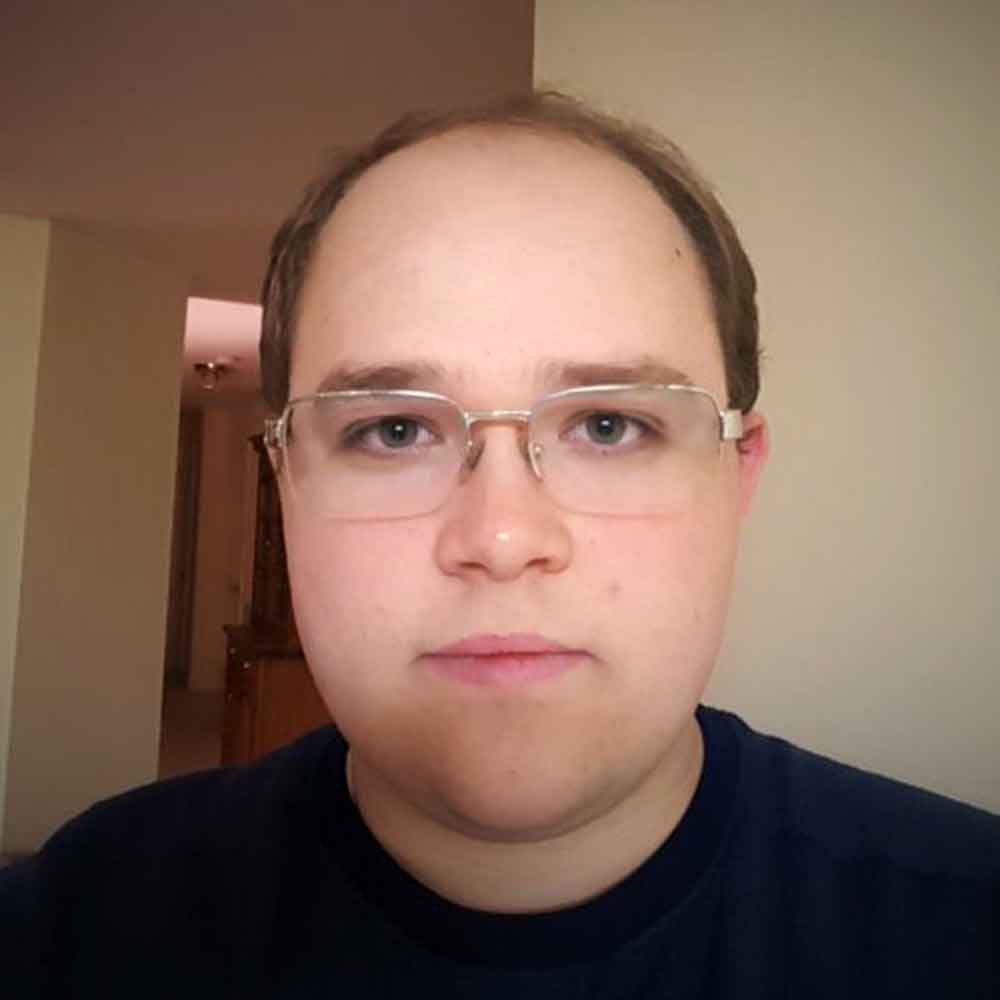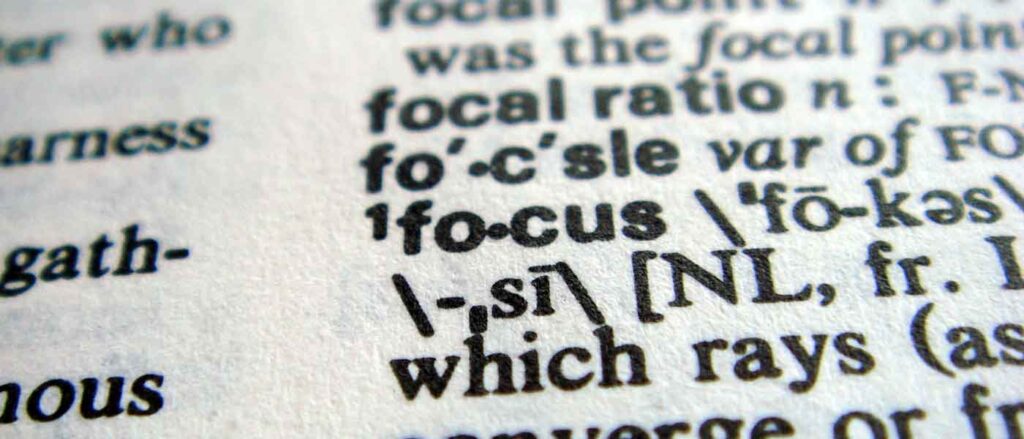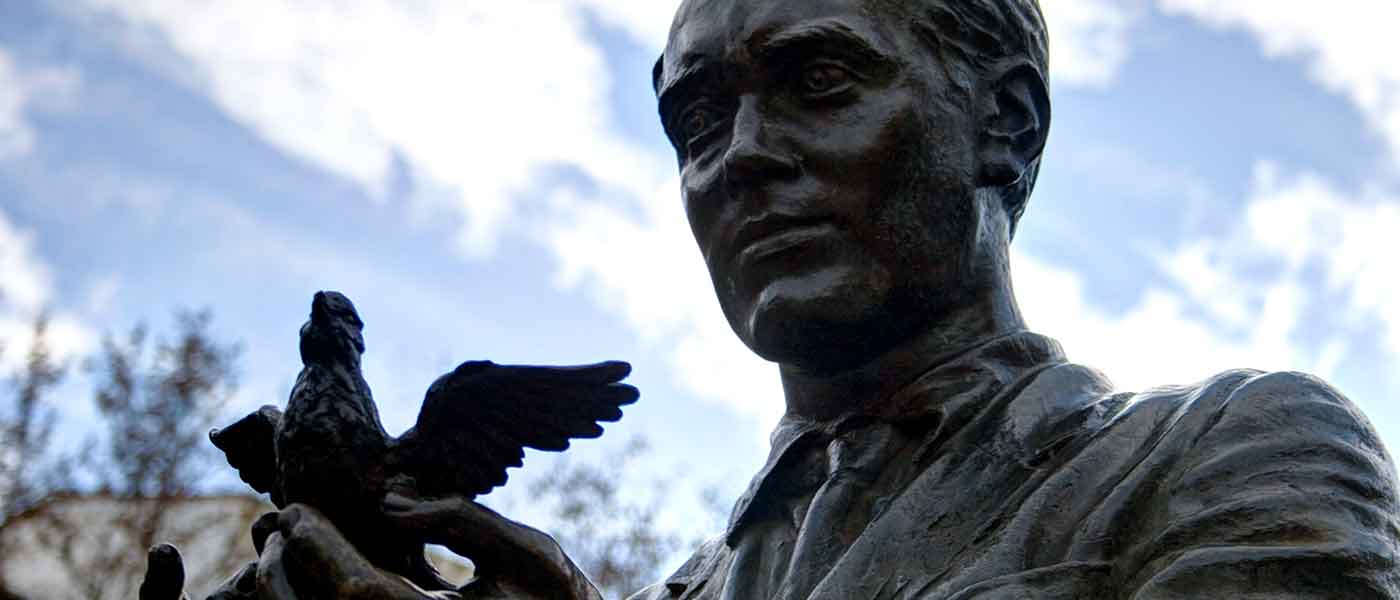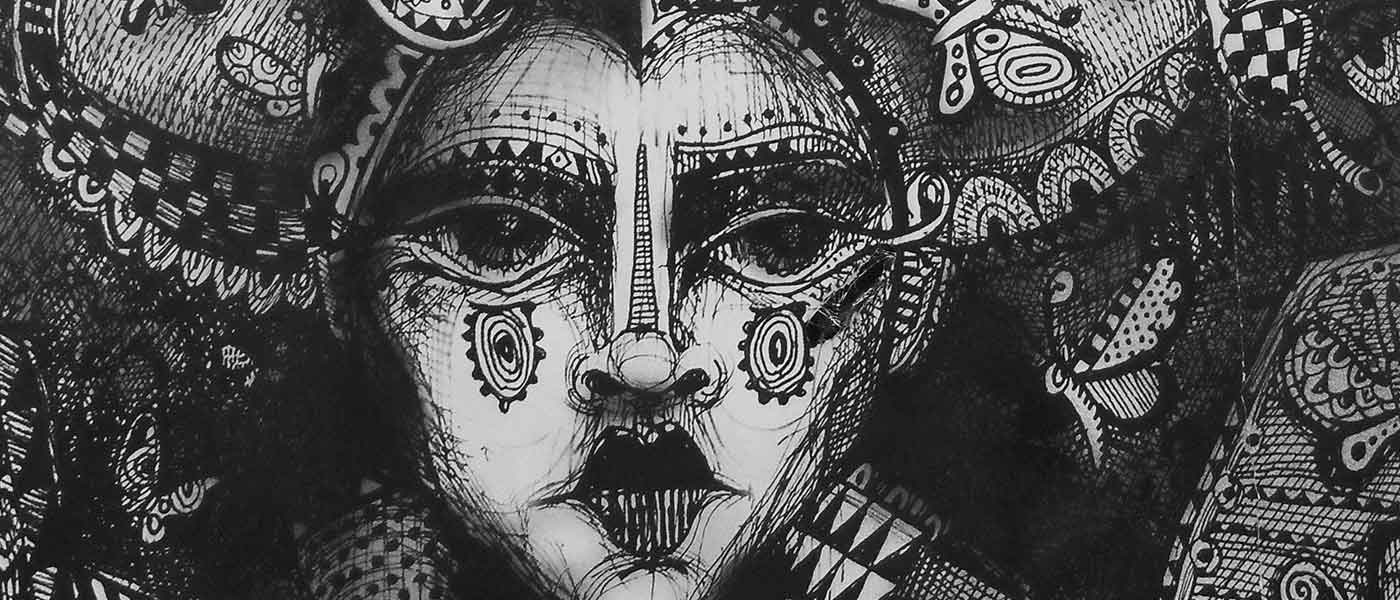I grew up in a schism. My father came of age in a Jewish family from Massapequa, New York, and my mother a Baptist family from Dalton, Massachusetts. Beyond the sports rivalries, there were the disparities of the elongated hellos of Massachusetts versus the elongated Jewish goodbyes; or the indulgent and music-filled holidays on Long Island versus the spartan and conservative observances in the Berkshire mountains. Both my conservative grandfathers spoke in different ways, one with a mixture of Yiddish and old-time New York jazz scene-slang, while the other with much more pointed, deliberate, and soft-spoken blue-blooded American English, yet each imparted similar messages in favor of the old ways of doing things, a respect for our heritage. One died when I was 6, the other when I was 23, but the legacy each left dealt me language and temperament, the combination of which informs my own idiolect.
Dialect is a difficult word for linguists. The transience of language and the geographic mobility of people make defining it a loose and inexact task. Among popular culture, dialect may mean something like a certain region’s way of talking or a certain accent — people in Boston say “pahked the cah” while people in New York say “cawfee” — which is partly why I confused people: I said both. But the thing is, I hadn’t noticed my Northern-leaning language until my closest friends persistently pointed it out whenever I told them I was headed north to Bahston for college.
It was a strange feeling: that based on the way I pronounced a single word, I could become an outsider in my hometown. Those trips up the Taconic State Parkway to visit family had their say, and Bahston was the remnant, the nugget of gold passed down from their lips to mine. And years later, it would be the impetus for studying the very nature of language, its origins, and its structure.
I’ve observed two patterns during my years of forensic linguistics studies: first, that the degree to which people go in their dialectal dispersions depends largely on the amount of irrationality they can embrace freely; and second, the portrayal of an accent has much more to do with the popular perception than people do. For example, in looking at the presidential debate, a farmer out in Kansas would much more readily mistake the obnoxious blowhard in a suit for the former New York Senator than the quaint-sounding lady, to my chagrin. And that hurts me, as a New Yorker, because we actually elected the non-stereotype: the measured one.
While on an intimate level, our different ways of speaking can bring an air of entertainment, we can often read unfamiliarity as threatening, so when you situate dialects with regard to what constitutes a language, the definitional power struggle begins. When our understanding of language broadens, we ultimately see dialects emerge organically, often with respect to region, class, or race — and language is a term used by the powerful to describe the powerful as such.
With the present election season in full swing, I am reminded of the first Obama candidacy, when Senator Harry Reid commented on Obama’s fluidity in switching between sounding like a standard American English speaker and sounding like someone brought up with the African American community’s dialect. Reid infamously referred to such speech as a put-on “negro dialect.” Obviously, that sort of prejudice was underscored by the racial tag attached to it; however, generally speaking, prejudice as it affects our perception of speech patterns and various types of dialects can be more insidious than a case like this: the way we speak can deny us fair housing opportunities, be used as evidence in the court of law to lock us up for life, or even – in an indirect way – be a reminder of our socioeconomic disadvantages. The misinterpretation of language harms a great deal of real people. Yet, the reality is shielded by our own perceptions: we are all inured to these injustices by the very nature of how language perception is created by the powerful, and knowledge isn’t enough to fix these problems, but knowing that a problem exists at least amounts to something, sparking the beginning of a resolution.
Ignorance is a source of much of our collective misunderstandings with regard to language. Language, per se, is usually perceived either as the mean, a conjoining of these varying dialects, or the standard against which they differ. Some people say things like, “black English isn’t even a language, it’s just a lazy way of speaking.” As a linguist, no statement generates more ire than this. We all have language. Language isn’t something delicate handed out to the elite and powerful when they come of age in order to preserve it; language is a product of all our collective minds, creative impulses and struggles. The complexity of dialects is universal. Dialects like African American Vernacular English and Chicano English are not lazy at all; in fact, they are in ways much more nuanced and regimented than Standard American English. AAVE, for instance, standardizes many endings, such as the present tense, where there is not extra ending for 3rd person singular. I go, you go, he go. If you want a reason why Standard American English doesn’t do the same things, the only answer you have is “convention.”
Furthermore, as linguists conceive of a language, there’s very little substance to what a language is, per se. For linguists, languages are really a sort of glue that shape the way dialects are brought together in a unified mass. When it’s gets to technical details of what defines a language, linguists don’t have an urgency to answer this question. In other words, it’s not an important aspect of language analysis and language study. What is popularly called a language is generally borne more out of the power of the speakers lending credence to that claim than anything else. There is nothing more language-like about saying “He goes there every day,” rather than “He go there every day,” but the fact that disenfranchised groups are more likely to say the latter sways the popular perception. Meanwhile, African American Vernacular English shares traits with Chaucerian English that are absent in most modern varieties of the language, yet rarely would one see AAVE considered as the elevated, true form of the language.
In short, to conceive of any dialect as lesser or less constituting of English isn’t just bad linguistics, it is the exercising of power by the elite in order to diminish and subjugate the oppressed and disenfranchised.
Language is defined by mutual intelligibility. If one speaker can understand another, they can be said to share a language. In that definition, there isn’t even a possibility of hierarchy. Yet, often our reality doesn’t line up with the facts of how dialects are made and function. Recently, knowledge of the effect prejudice has on language within popular discourse has grown and with it has our understanding of linguistic discrimination.
Professor John Baugh of Washington University of St. Louis conducted studies in the 1990s that revealed widespread linguistic discrimination in the housing market. In his study, Baugh would call housing advertisements with speakers of various linguistic groups including African American Vernacular English (AAVE), Chicano English, and so-called Standard American English. The findings showed that there was a large disparity in the treatment each speaker warranted based on their dialect.
The phenomenon he called linguistic profiling reveals an insidiousness and nefariousness to prejudice based on dialect that in cases like Reid’s aren’t as transparent. It’s easy to hide the judgments we make based on a person’s way of speaking. Indeed, often the prestige of a dialect is revealed in our own behavior, where those who of a lower prestige adjust to a higher prestige. Similarly, William Labov, a preeminent sociolinguist, found in his studies of New York City accents that class and prestige of a dialect correlate. Studying workers at clothing stores in New York City, he found that the workers talked “posh” in environments involving wealthier clients.
Labov also noted that even linguistics scholars back in the late 19th Century saw the class division of language. The elite don’t generally mix with the proletariat. Yet, despite the heterogeneous working population in New York, the working class New Yorkers are “‘in spite of diverse origins […] singularly homogenous socially and intellectually.’” The overlapping nature of the various dialects we draw from create concentric circles of identities that converge in our idiolect, or our singular way of speaking. Yet, the larger community we participate in generates a unified whole as well. When you join a new community, you adapt and become a part of that community, yet each speaker is unique in their engagement with what that means to them. This is because language evolves organically outside and inside of ourselves.
Modern linguistics has shown us that we speak the language of our peers. Languages are alive when children grow up speaking them, inventing and reinventing them, and pushing barriers with their language faculties. When no one is left to change and invent within that language paradigm, the language dies. So, despite our misperceptions of correctness and the institutionalized oppression of certain dialects, there isn’t any deep reason within language to see any one speaker’s dialect as better than another. The mosaic of language is itself filled with aesthetic value and that is part of what makes language language.
Sources:




